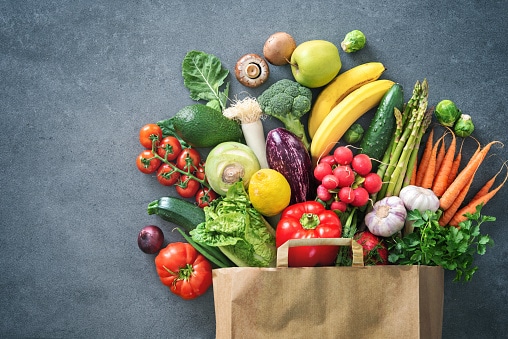Last year, Bill Gates named his 10 breakthrough technologies for the year. Among the technological developments he outlined were robot dexterity, new-wave nuclear power, customized cancer vaccines and the cow-free burger. It was the first time that the list, usually compiled by MIT Technology Review, was created by a guest editor. It is no wonder that Gates rightly predicted that home computers and the internet would infiltrate much of our lives. Yet, when I went through this list, it was not necessarily universal. Many of these breakthrough technologies made sense through Western lenses. We have to ask, which of these breakthrough technologies will have the most significant impact on the African continent?
Perhaps the most pressing issue for Africa now is agriculture. Climate change has had a devastating impact on the agriculture sector, which is particularly concerning when you consider that most African economies still heavily depend on it. A study by McKinsey & Company found that more than 60% of the population of sub-Saharan Africa is smallholder farmers, and about 23% of sub-Saharan Africa’s gross domestic product (GDP) comes from agriculture. Yet, increases in temperatures, changes in precipitation patterns and extreme weather events not only disrupt entire industries but reduce food availability and impacts food quality. This, of course, is coupled with the fastest-rising population, which places more strain on resources.
We have already observed in the last few years how devastating a drought can be. South Africa has become a significant food importer, while Kenya and Zimbabwe are on the verge of starvation. This has seen the regional and national economic growth take a severe knock. Yet, as the United Nations put it, “the continent has enormous potential, not only to feed itself and eliminate hunger and food insecurity but also be a major player in global food markets.” So how do we go about this? I would argue that tapping into the technologies of the fourth industrial revolution (4IR) does not just serve as a way of revitalizing the agricultural sector but also realizing its potential. As the American financier Bernard Baruch once put it: “Agriculture is the greatest and fundamentally the most important of our industries. The cities are but the branches of the tree of national life, the roots of which go deep into the land. We all flourish or decline with the farmer.”
I have just bought a farm and have been looking at ways in which artificial intelligence (AI) can make farming more efficient. Farmers can tap into AI to combat disease and pests, which have been made worse by climate change and pesticide use. Drones and other robots equipped with computer vision can collect data points from the farms’ existing crops. If you were to ask me to spell out some breakthrough technologies, many of them would be inextricably linked with the agricultural sector.
For instance, it is estimated that humans would need to plant over 1.2 trillion trees to combat climate change. Here, we could use AI to automate this process.
Airlitix is a South African AI software that is currently being used in drones to automate greenhouse management processes. We could take this a step further. Airlitix can collect temperature, humidity, and carbon dioxide data as well as analyse soil and crop health.
Elsewhere, similar technology has been adopted. The Third Eye project in Kenya uses near-infrared cameras mounted on drones to survey and diagnose the plants for pests and diseases, water stress and nutrient deficiencies. This requires a combination of historical data and the use of AI. Last year, IBM developed an AI-powered app to test the quality of their soil and water on location, in real-time. The AgroPad is a technology that can rapidly perform chemical analysis of water and soil samples. In California, Ceres Imaging has mapped fields using images of farms, which are analysed using AI to ascertain whether crops are getting enough water. This technology helps farmers decide when to plant, water, spray and harvest their crops.
This conversation crops up as we scrutinize what it means to have a green economy. The 4IR does not merely provide tools for efficiency, but it presents a unique opportunity to interrogate how we can transform the industry as our natural environment deteriorates.
To a large extent, we underestimate the importance of the agricultural sector. Yet, without it, we would not have food security, we would see our economies crumble and there would be untold job losses.
-Tshilidzi Marwala
